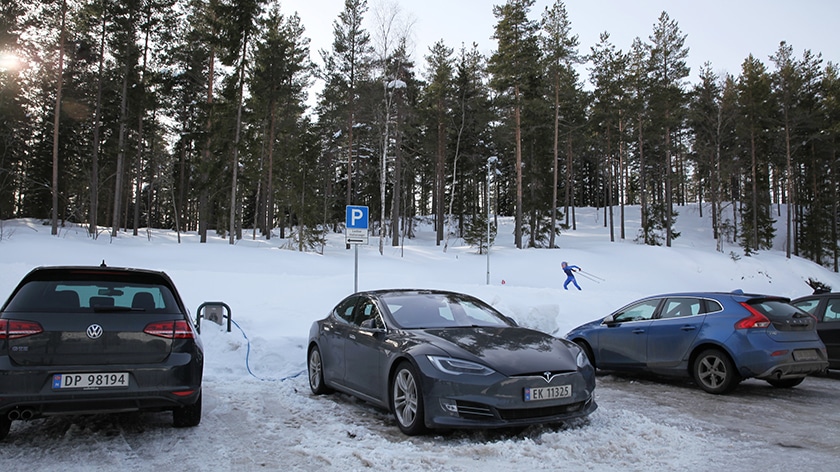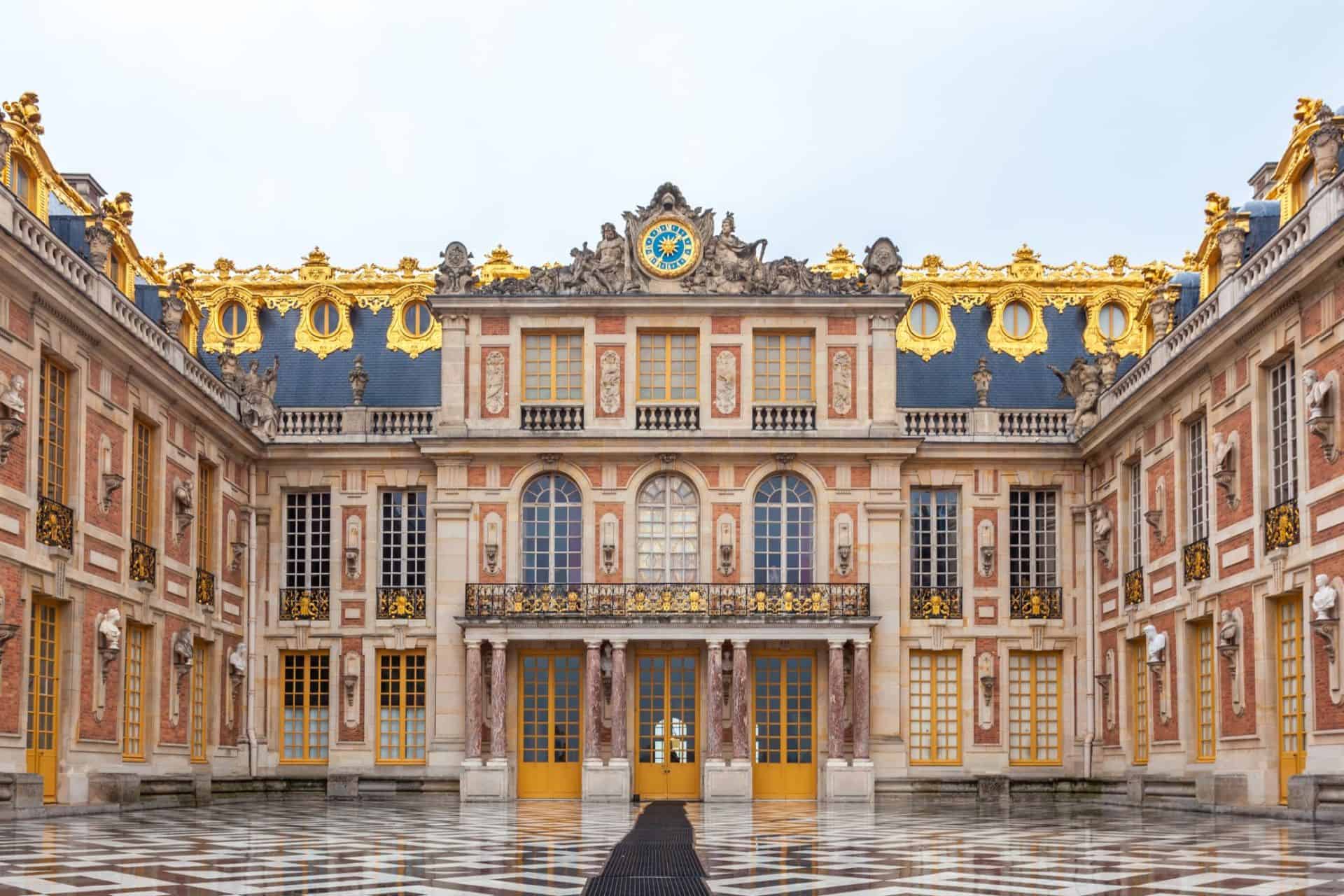[vc_row njt-role=”people-in-the-roles” njt-role-user-roles=”administrator,editor,author,armember”][vc_column][vc_column_text]
The International Monetary Fund (IMF) believes that Norway should implement a tax on luxury electric cars to reduce the cost of subsidies.
The International Monetary Fund (IMF) has spoken about subsidies given to Dutch citizens for the purchase of electric cars, and believes that taxes should be put in place on luxury electric vehicles to reduce the overall cost of subsidies given to buyers.
Today, Norway exempts all fully electric vehicles from tax. If it were to follow the IMF‘s lead, Norway could tax luxury car manufacturers such as Mercedes-Benz, Jaguar, Porsche, and even some high-end models from Tesla and Audi.
The country of the Fjords, at the forefront of the complete electrification of the world’s roads, would like to become the first nation to ban the sale of vehicles with combustion engines by 2025. That’s why the taxes imposed on internal combustion engines are not currently imposed on any electric models.
By 2020, 54% of all new cars sold in Norway will be electric. A world record, which can be compared to the figures for 2019 (42%) or ten years ago (only 1%). However, this significant increase also comes with heavy losses for the Kingdom of Norway.
Indeed, with this policy of not taxing all vehicles, the country would have lost nearly 19.2 billion Norwegian kroner in lost state revenue in 2020, which is about 250,000 kroner (€24,811) per new electric car sold.
“Norway could improve the targeting of its tax incentives to increase their environmental impact,” say three IMF economists in the paper.
The international institution thus proposes that Norway offer trade-in subsidies for gasoline and diesel vehicles when buying an electric vehicle, and also suggests increasing the taxes already present on the most polluting cars.
In Norway, a country with a center-right government, the center-left Norwegian opposition, which is favoured to win the national elections in September, could benefit from the IMF‘s advice. While the opposition supports a plan for a full switch to electric vehicles throughout the Kingdom by 2025, many party members have expressed a desire to tax luxury electric vehicles.
The Norwegian Labour Party, along with other center-left parties, wants to impose taxes on the portion of the price of electric vehicles exceeding 600,000 kroner (59,548 euros). For an entry-level Porsche, the minimum price is 758,000 kroner, and for the brand’s most luxurious models, the price starts at 1.7 million kroner.
Read also > LAMBORGHINI: A SWITCH TO HYBRID AND ELECTRIC ENGINES PLANNED FOR 2024
Featured photo: © Agnès Villette[/vc_column_text][/vc_column][/vc_row][vc_row njt-role=”not-logged-in”][vc_column][vc_column_text]
The International Monetary Fund (IMF) believes that Norway should implement a tax on luxury electric cars to reduce the cost of subsidies.
The International Monetary Fund (IMF) has spoken about subsidies given to Dutch citizens for the purchase of electric cars, and believes that taxes should be put in place on luxury electric vehicles to reduce the overall cost of subsidies given to buyers.
Today, Norway exempts all fully electric vehicles from tax. If it were to follow the IMF‘s lead, Norway could tax luxury car manufacturers such as Mercedes-Benz, Jaguar, Porsche, and even some high-end models from Tesla and Audi.
[…][/vc_column_text][vc_cta h2=”This article is reserved for subscribers.” h2_font_container=”tag:h2|font_size:16|text_align:left” h2_use_theme_fonts=”yes” h4=”Subscribe now !” h4_font_container=”tag:h2|font_size:32|text_align:left|line_height:bas” h4_use_theme_fonts=”yes” txt_align=”center” color=”black” add_button=”right” btn_title=”I SUBSCRIBE !” btn_color=”danger” btn_size=”lg” btn_align=”center” use_custom_fonts_h2=”true” use_custom_fonts_h4=”true” btn_button_block=”true” btn_custom_onclick=”true” btn_link=”url:https%3A%2F%2Ftest2023.luxus-plus.com%2Fen%2Fsubscriptions-and-newsletter-special-offer-valid-until-september-30-2020-2-2%2F”]Get unlimited access to all articles and live a new reading experience, preview contents, exclusive newsletters…
Already have an account ? Please log in.
[/vc_cta][vc_column_text]Featured photo : © Agnès Villette[/vc_column_text][/vc_column][/vc_row][vc_row njt-role=”people-in-the-roles” njt-role-user-roles=”subscriber,customer”][vc_column][vc_column_text]
The International Monetary Fund (IMF) believes that Norway should implement a tax on luxury electric cars to reduce the cost of subsidies.
The International Monetary Fund (IMF) has spoken about subsidies given to Dutch citizens for the purchase of electric cars, and believes that taxes should be put in place on luxury electric vehicles to reduce the overall cost of subsidies given to buyers.
Today, Norway exempts all fully electric vehicles from tax. If it were to follow the IMF‘s lead, Norway could tax luxury car manufacturers such as Mercedes-Benz, Jaguar, Porsche, and even some high-end models from Tesla and Audi.
[…][/vc_column_text][vc_cta h2=”This article is reserved for subscribers.” h2_font_container=”tag:h2|font_size:16|text_align:left” h2_use_theme_fonts=”yes” h4=”Subscribe now !” h4_font_container=”tag:h2|font_size:32|text_align:left|line_height:bas” h4_use_theme_fonts=”yes” txt_align=”center” color=”black” add_button=”right” btn_title=”I SUBSCRIBE !” btn_color=”danger” btn_size=”lg” btn_align=”center” use_custom_fonts_h2=”true” use_custom_fonts_h4=”true” btn_button_block=”true” btn_custom_onclick=”true” btn_link=”url:https%3A%2F%2Ftest2023.luxus-plus.com%2Fen%2Fsubscriptions-and-newsletter-special-offer-valid-until-september-30-2020-2-2%2F”]Get unlimited access to all articles and live a new reading experience, preview contents, exclusive newsletters…
Already have an account ? Please log in.
[/vc_cta][vc_column_text]Featured photo : © Agnès Villette[/vc_column_text][/vc_column][/vc_row]










